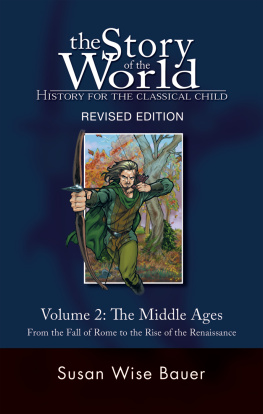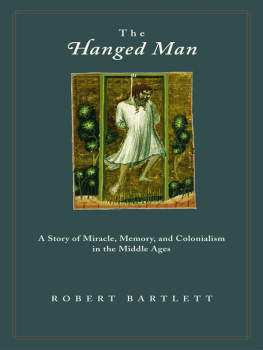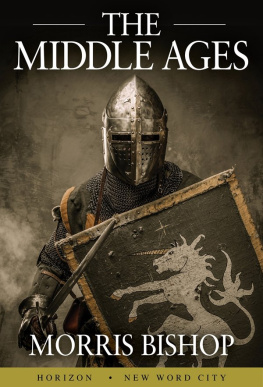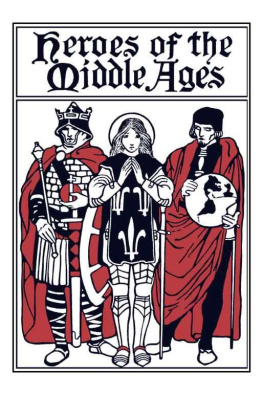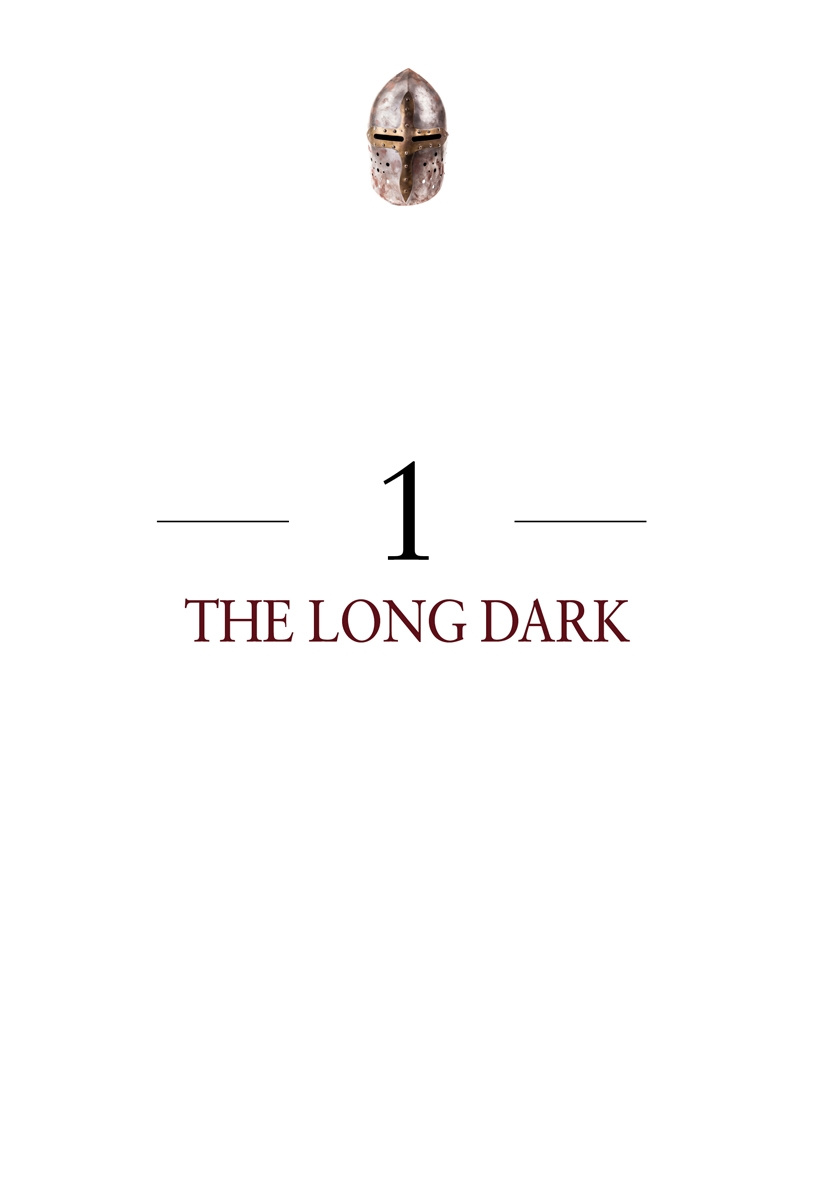The Middle Ages is an unfortunate term. It was not invented until the age was long past. The dwellers in the Middle Ages would not have recognized it. They did not know that they were living in the middle; they thought, quite rightly, that they were times latest achievement. The term implies that the Middle Ages were a mere interim between ancient greatness and our modern greatness. Who knows what the future will call it? As our Modern Age ceases to be modern and becomes an episode of history, our times may well be classed as the later Middle Ages. For while we say time marches forward, all things in time move backward toward the middle and eventually to the beginnings of history. We are too vain; we think we are the summit of history.
The Middle Ages of Europe were a continuation and a formation. They were a continuation of old Rome in race, language, institutions, law, literature, the arts. They were also a continuation of cultures independent of Rome. The Franks and the Saxons, the Greeks and the Arabs, contributed their own civilizations to Western Europe to help make the new civilization that we inherit. The English language, formed in the Middle Ages and drawn from every source, from Sanskrit to Icelandic, is a symbol of our blended culture.
In a deeper sense, the Middle Ages were a continuation of the ancient peasant culture that goes back 10,000 or 20,000 years, to the Stone Age. This depended on settled agriculture and the raising of domestic animals for food, clothing, and service; it possessed few tools beyond a crude plow and harrow, but it learned to adapt itself and to survive and attain a rude well-being. This peasant culture scarcely changed from millennium to millennium. It remains even to our own times. A highland farmer in Macedonia, a shepherd in the Auvergne Mountains, live a life more medieval than modern. An American pioneer of the last century, setting out with oxcart, ax, plow, and spade to clear a forest farm, was closer to the Middle Ages than to modern times. He was self-sufficient, doctoring himself and his family with herbs, raising his own food, pounding his own grain, bartering with rare peddlers, rejoicing in occasional barn dances for all the world like medieval karoles.
But the Middle Ages were not merely a continuation; they were the formation of our world. A modern school of historians contends that the so-called Dark Ages were a period of ascent rather than of decline, that with the withering of the pagan classic civilization came the first budding of a new culture that was to develop into our modern civilization.
When did these Middle Ages begin? When Rome fell. But when did Rome fall? No one knows. Historians have proposed many dates. A common one is A.D. 476, when the last emperor of Roman blood, Romulus Augustulus, was deposed by a barbarian Goth, Odoacer. That date will do if we remember that the transition from ancient to medieval was slow, that at some time in the fourth or fifth or sixth century the old Roman system of organization and behavior and thought was replaced, more or less, by another; then it can be said that Rome had indeed quietly fallen.
But why did Rome fall? We have far too many answers. There is the intellectual answer: Montesquieu said that the Romans conquered the world with their republican principles, they changed their principles to fit an empire, and the new principles destroyed it. There is the moral answer: license, luxury, and sloth, a decline in character and in discipline. The Christian answer of Saint Augustine: Sinful Rome fell to prepare for the triumph of the City of God. The rationalist answer of eighteenth-century freethinkers: Christianity, teaching nonresistance, other-worldliness, disarmed the Romans in the face of the barbarians. The political answer: Caesarism, loss of public spirit, the failure of the civil power to control the army. The social answer or answers: the war of classes and the institution of slavery, which suppresses incentives toward change and progress. The economic answer: trade stagnation, low productivity, scarcity of gold and silver. The physical answer: soil depletion, deforestation, climatic change, drought. The pathological answer: plague and malaria, or even lead poisoning from cooking pots and water pipes. The genetic and racial answers: the dwindling of the old Roman stock through war and birth control and its mingling with Oriental and barbarian breeds. And the biological-cyclical-mystical answer: An empire is an organism, and like a living creature, it must pass through stages of growth, maturity, and decline, to death.
Whatever the cause, the later days of the empire were marked by discouragement and fear, by what has been well termed a failure of nerve. The Roman Empire was like a declining business, whose program is retrenchment and retreat, whose ventures are desperate, whose employees can only shrug their shoulders and hope that the old enterprise will last out their time.
Most of the old Roman magnificence remained, the great stone walls, temples, baths, aqueducts, theatres, and mansions. But the cities shrank in size and population; for instance, Autun in France dwindled from an area of 500 acres to less than twenty-five. With the shrinkage came the abandonment of municipal services - street lighting, running hot water for the public baths, sewage systems. Weeds and bushes grew in the aqueducts, prying the stones apart. Roofs fell in, pavements heaved, refuse lay where it was thrown. Vacant houses were torn down for material to strengthen the walls. The cities had a battered, hopeless look. In the countryside the population diminished, the old Roman slave-operated estates disintegrated, and farm land reverted to waste and marsh.
Depopulation had begun in Italy and Greece in the third century B.C., and before long even Gaul was affected. The Roman army was kept to strength only through the recruitment of barbarians - a practice that was destined to bring disaster. The emperors invited immigrants from beyond the frontiers to colonize Italy, and even the uninvited joined them.
Economically the old system contracted or gave way. It had depended too much on conquest, tribute, slavery, and had fostered a fatal scorn for productive labor. Towns, in their subsidence, overspent their resources; transport became dangerous and expensive; wars, being mainly defensive, brought in no booty. As money lost its meaning, there began a gradual shift toward a natural economy. Communities reduced their wants, their scale of living, and learned to be almost self-sufficient. Still, there are always the smart and the lucky, even in disastrous days. The generals did well, and the high officials, and the sycophants, and clever Syrian and Jewish traders, and especially the large landowners. Some landowners fortified their mansions and kept private armies. They built their estates through imperial gifts or through purchasing the holdings of small landowners, who received in return protection against the taxing government and against marauders, native or foreign. These men were bound to the soil as coloni and were soon to become serfs. But their way of life was not much changed, and if they lost freedom, they gained security, a fair bargain in a tottering world. Here one sees the cell-like movements that were to develop into the feudal system.
This age of mournful endings was marked by a great beginning: the rise of the Christian church in the West. Christianity, with its beauty, its lofty ethics, its universal appeal, and its glorious promise of immortal bliss, was eagerly welcomed. Its triumph was assured by the conversion of the Emperor Constantine. Before his battle at the Milvian Bridge in Rome in A.D. 312, he saw in the sky a blazing cross, with the words, in Greek: By this conquer. He vowed that if he should win the battle for control of the empire, he would become a Christian. Indeed, he won, and indeed he became a Christian, although an uncommonly bloodthirsty one. Thus, Christianity became the official religion of Rome while paganism lingered on in the countryside and among conservatives with antiquarian tastes.



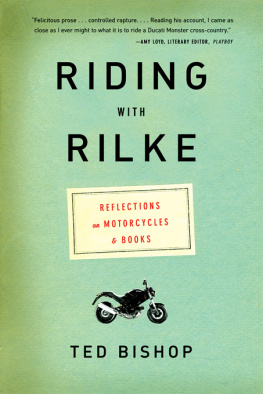
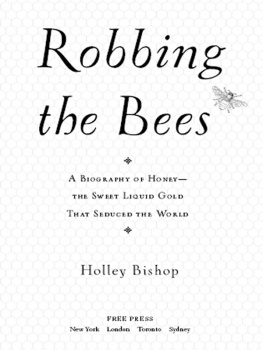
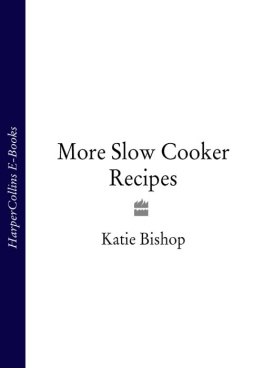
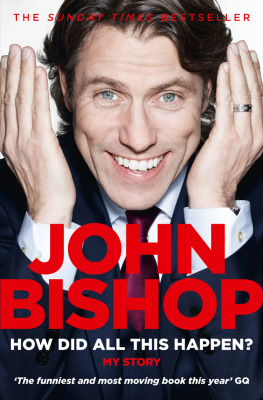

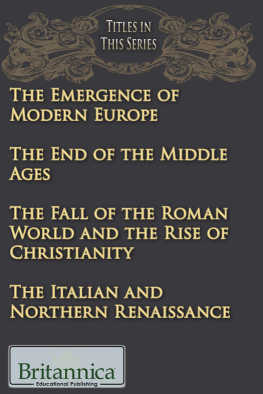
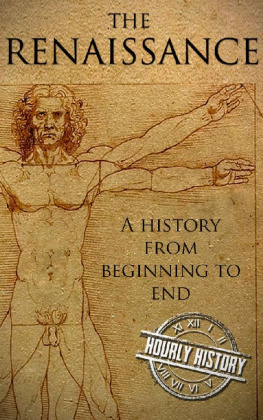
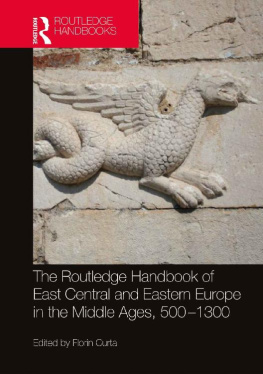
![Rountree Elizabeth - The story of the world: [history for the classical child]. Volume 2, The Middle Ages, [from the fall of Rome to the rise of the Renaissance]: test book and answer key](/uploads/posts/book/232759/thumbs/rountree-elizabeth-the-story-of-the-world.jpg)
